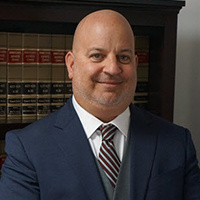Revere Criminal Lawyer, Pennsylvania
Sponsored Law Firm
-
 x
x

Click For More Info:
-
The Law Offices of Richard J. Fuschino Jr.
1600 Locust St Philadelphia, PA 19103» view mapCriminal Defense Protecting Your Freedom and Your Reputation
Richard J. Fuschino has been defending people against criminal charges for most of his professional career.
800-973-5371
Charles Laputka
✓ VERIFIEDIf you are experiencing financial difficulties, you do not have to work through them alone. The Laputka Law Office focuses on your debt/credit related... (more)
Albert Yacoub
✓ VERIFIEDAs a former Luzerne County Assistant District Attorney, Albert prosecuted many criminal cases before setting his sights on criminal defense and immigr... (more)
Frank J. Trovato
✓ VERIFIEDFrank is a practicing lawyer in the state of Pennsylvania.
Liam John Duffy
✓ VERIFIEDLiam J. Duffy practices in the areas of Divorce, Support, Child Custody, Equitable Distribution, Protection from Abuse, Civil Litigation, Business Law... (more)
Vincent D. Margiotti
✓ VERIFIEDFollowing law school Mr. Margiotti practiced exclusively in the area of personal injury and accident law with a major Philadelphia law firm. After se... (more)
Paul M. Aaroe
✓ VERIFIEDPaul M. Aaroe, II, Esquire. Over 30 years of experience. Personal and professional services. Son of Superior Court Judge Paul Aaroe. Dedicated ... (more)
Steven Fisher Fairlie
✓ VERIFIEDSteven F. Fairlie has been designated a Pennsylvania “SuperLawyer” in both Personal Injury and Criminal Defense by Philadelphia Magazine and place... (more)
Keith D. Cacciatore
FREE CONSULTATION
CONTACTJoshua Douglas Fulmer
FREE CONSULTATION
CONTACT Richard Fuschino Philadelphia, PA
Richard Fuschino Philadelphia, PA AboutThe Law Offices of Richard J. Fuschino Jr.
AboutThe Law Offices of Richard J. Fuschino Jr. Practice AreasExpertise
Practice AreasExpertise







